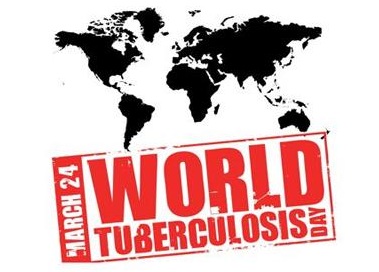
Today is World TB Day. More people die of tuberculosis in South Africa than from any other disease.
The HIV epidemic is to a large degree responsible for that. Dealing effectively with the one epidemic typically improves the outcomes of the other.
While not exactly neglected, TB doesn’t get nearly enough attention. South Africans are much more likely to die of TB than violence. Yet compare the coverage these two scourges get in the media.
Part of the reason for this is that TB is a disease that is virtually absent from the lives of middle-class South Africans. The divide in our country between haves and have-nots is very effectively expressed by the white plague as TB was called a long time ago.
TB in wealthy countries receded dramatically in the 19th century and, except for the occasional outbreak, became a minor public health problem by the 1960s. Many public health measures contributed to this. One of the most important of these was a series of clinical trials conducted by the state funded British Medical Research Council in the late 1940s and 1950s. From these came the effective TB medicines that we still use today.
Unfortunately, for a significant minority of patients in South Africa and elsewhere, some or all of those drugs no longer work. These patients have “drug-resistant TB”. Research into new TB medicines dried up for decades, so no new TB drugs have come to market for a long time.
Also, while it takes about 10 minutes to diagnose if someone has HIV, diagnosing TB is a notoriously slow, labour-intensive, and relatively expensive process. Diagnosing drug-resistant TB is even slower. So many patients are put on the standard treatment regimens even though it is ineffective for them.
Every year, billions of dollars in public and private investment are poured into researching diseases that affect the wealthy. Less than a billion dollars goes into TB. Investment in TB research, after decades of stagnation, began to increase again from 2005 to 2011 (from $350m to $650m). This paid off somewhat. The World Health Organisation estimates that TB deaths have begun to decline, albeit slowly, worldwide.
We have slightly better diagnostics. New drugs are being developed and used in very ill patients, but none of them have yet been tested sufficiently. TB research moves at a glacial pace compared to, for example, HIV. Very troubling though is that since 2012 investment has begun declining again.
Pharmaceutical companies aren’t particularly interested in large investments in diseases of the poor, and governments aren’t putting enough money into research. The US government has cut funds to its main research arm, and governments like India and South Africa simply don’t take enough responsibility for research into the TB epidemic. Until this changes, the white plague will continue to be the largest killer in South Africa. It doesn’t have to be this way.
Source: GroundUp